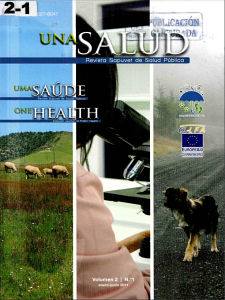Abstract
Agritourism literally means tourism to the countryside and includes many activities that take place at farms open to the public. Agritourism is popular with farmers as a source of supplementary income, and with visitors from an idealistic perspective, involving a generally romantic image of nature and the country lifestyle. However, with agritourism many extra risk factors occur, such as direct contact with animals and manure, as well as the consumption of homemade farm products. Not much has been published about the link between agritourism and the risk of zoonotic diseases, although much material exists regarding zoonotic diseases. Therefore, this article describes the risks of zoonotic diseases in agritourism and offers an overview of publications and discussions among experts on this subject. Zoonotic diseases can be caused by different types of agents, such as bacteria, parasites, fungi and viruses, all of which possibly existing at farms open to the public. This emphasizes the importance of strict adherence to hygiene measures by workers and visitors on farms in The Netherlands. The four most important zoonotic diseases in agritourism today are Escherichia coli, Salmonellosis, Campylobacteriosis and the Q fever. In the past, measures were only taken after serious outbreaks of zoonotic diseases. Under the motto “prevention is better than cure”, it would be wise to introduce preventative measures in agritourism before more serious cases occur, which is something that experts already predict. General hygiene measures, such as an information board and hand washing facilities, can be followed in order to prevent zoonotic diseases in agritourism. All general hygiene measures can be described in a code like the one that for children’s farms in The Netherlands.Downloads
Download data is not yet available.



